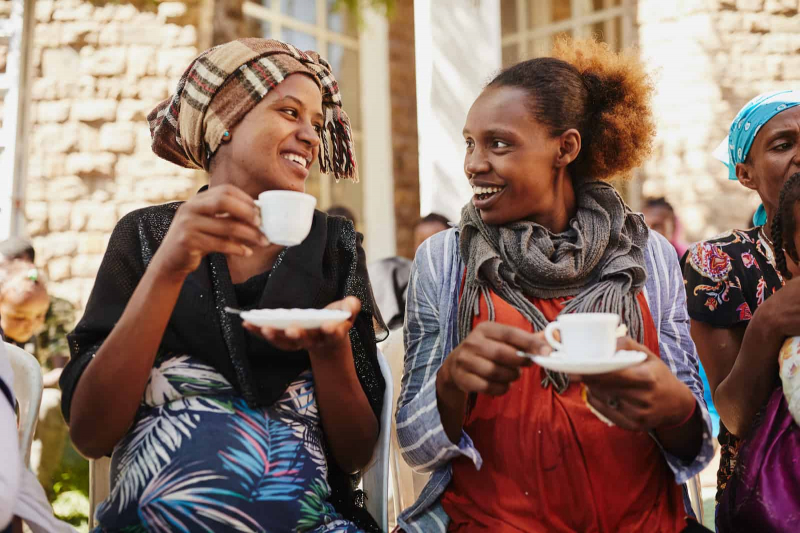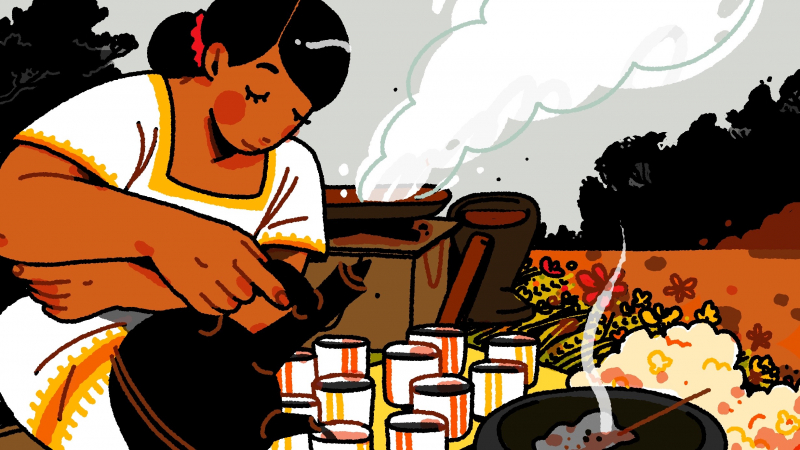Coffee Drinking
One of Ethiopia's cultures, customs, and etiquette, regardless of their ethnicity, is coffee. Coffee is Ethiopia's national drink, and it is served and consumed during the ceremony. The entire procedure should take at least one hour. Coffee is served while sitting on pillows or on a grass-and-flower-strewn floor, with frankincense perfuming the air. In front of guests, beans are washed, roasted, and ground. Typically, the person presiding over the coffee ritual is a young lady who has been trained in the nuances of the ceremony for years.
Sugar will be placed into the coffee cup, then coffee and water will be poured over the sugar. (The coffee pot is called a “Jebena.”) In some rural homes, coffee is served with salt instead of sugar. The guest-of-honor or the eldest person is served first. The coffee should first be inhaled, then sipped slowly.
Traditionally, three rounds of coffee are served, each more diluted than the previous: "abol" (also "awol"), "tona," and "baraka," which means "to be blessed." The three cups of coffee are thought to represent a gradual spiritual transformation. Do not refuse coffee—unless for medical or religious reasons, for example. A guest invited to a coffee ceremony (which, in some families, occurs up to three times per day) should present the host or hostess with a simple gift—such as sugar, pastries, or candies.











